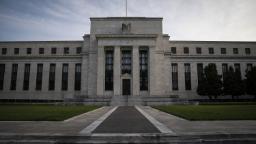Fed and other central banks try to head off crisis by keeping dollars flowing | CNN Business


London
CNN
—
The US Federal Reserve and several other major central banks announced a coordinated effort Sunday night to boost the flow of US dollars through the global financial system with the aim of keeping credit flowing to households and businesses.
“The Bank of Canada, the Bank of England, the Bank of Japan, the European Central Bank, the Federal Reserve, and the Swiss National Bank are today announcing a coordinated action to enhance the provision of liquidity via the standing US dollar liquidity swap line arrangements,” the central banks said in a joint statement.
Sunday’s statement came just hours after Swiss authorities orchestrated an emergency takeover of Credit Suisse by UBS. Credit Suisse — one of the 30 most important banks in the global financial system — was bleeding money last week after investor and customer confidence collapsed.
Market turmoil triggered by the second and third biggest bank failures in US history earlier this month is threatening to make it harder for people to borrow money, US Treasury Secretary Janet Yellen said last week.
“If banks are under stress, they might be reluctant to lend,” Yellen said Thursday in testimony to the Senate Finance Committee. “We could see credit become more expensive and less available.”
Christine Lagarde, president of the European Central Bank (ECB), told reporters Thursday that “persistently elevated market tensions” could further constrict credit conditions that were already tightening in response to rising interest rates.
Swap lines are agreements between two central banks to exchange currencies. They allow a central bank to obtain foreign currency from the central bank that issues it, and distribute it to commercial banks in their country.
The swap line between US Federal Reserve and the ECB, for example, enables the ECB to receive US dollars in exchange for an equivalent amount of euros. The ECB can then distribute those dollars to commercial banks in the 20 countries that use the euro.
The agreements can be an important tool for preserving financial stability and preventing market tension from affecting the economy, according to the ECB. During the global financial crisis of 2008 following the collapse of Lehman Brothers, funding markets dried up because of an extreme aversion to risk. Under these circumstances it became difficult for euro area banks to obtain US dollars.
From Monday through at least the end of April, the Fed and other central banks will make dollars available on a daily basis, rather than weekly.
“The network of swap lines among these central banks is a set of available standing facilities and serve as an important liquidity backstop to ease strains in global funding markets, thereby helping to mitigate the effects of such strains on the supply of credit to households and businesses,” they added.







